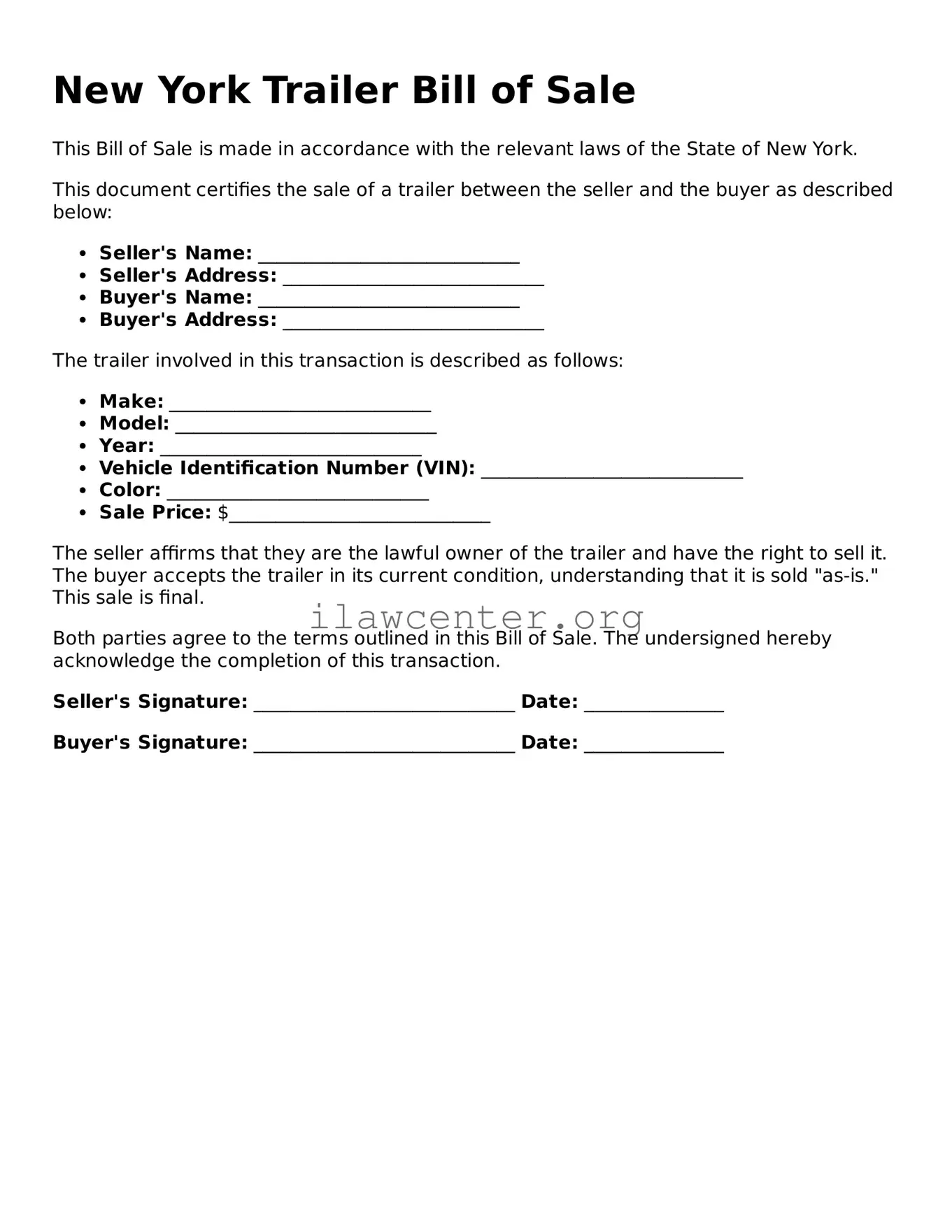Instructions on Utilizing New York Trailer Bill of Sale
After you have obtained the New York Trailer Bill of Sale form, you are ready to begin filling it out. Make sure you have all necessary information at hand, such as details about the trailer, the seller, and the buyer. Completing this form accurately is essential to ensure a smooth transfer of ownership.
- Begin by entering the date of the sale in the designated space at the top of the form.
- In the section labeled "Seller Information," write down the full name and address of the seller. Include their phone number for contact purposes.
- Next, in the "Buyer Information" section, provide the name and address of the buyer. Again, include a phone number for any necessary communication.
- Look for the area labeled "Description of Trailer." Fill in details such as the make, model, year, Vehicle Identification Number (VIN), and any other relevant identifiers.
- If applicable, indicate if there are any liens on the trailer. This is important for establishing clear ownership.
- Move on to the purchase price. Clearly state the agreed-upon amount that the buyer will pay the seller for the trailer.
- Both parties need to sign the form. The seller should sign it first, followed by the buyer. Ensure that everyone dates their signatures.
- Finally, check the form for any missing information before submitting or providing copies to the relevant parties.
